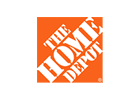By Janice Ramos
As the year comes to a close, it’s the perfect time to reflect on your website’s performance and set the stage for a successful new year. One of the most critical aspects of website optimization is on-page SEO. On-page SEO involves optimizing individual web pages to rank higher and earn more relevant traffic in search engines. However, many website owners and marketers make common on-page SEO mistakes that can hinder their search engine rankings and overall online visibility.
In this blog post, we’ll explore the top on-page SEO mistakes to avoid before the new year. By addressing these issues, you can ensure your website is in tip-top shape and ready to compete in 2024.

1. Ignoring Keyword Research
Keyword research is the foundation of on-page SEO. Without proper keyword research, your content may not align with what your target audience is searching for. Many website owners make the mistake of assuming they know which keywords to target without conducting thorough research.
Mistake: Targeting the Wrong Keywords
Choosing the wrong keywords can lead to low-quality traffic that doesn’t convert. For example, targeting highly competitive keywords without the necessary authority or targeting keywords that are too broad can result in poor performance.
Solution:
- Use tools like Google Keyword Planner, Ahrefs, or SEMrush to identify relevant keywords with high search volume and low competition.
- Focus on long-tail keywords that are more specific and easier to rank for.
- Ensure your keywords are naturally integrated into your content, including titles, headings, and meta descriptions.
2. Poor Content Quality
Content is king in the world of SEO. However, many websites still publish low-quality, thin content that doesn’t provide value to users. This is a major on-page SEO mistake that can hurt your rankings.
Mistake: Publishing Thin or Duplicate Content
Thin content, which is content that lacks depth or value, can signal to search engines that your site isn’t authoritative. Duplicate content, on the other hand, can lead to penalties and confusion for search engines.
Solution:
- Create high-quality, in-depth content that addresses the needs of your audience.
- Avoid duplicating content from other websites or even within your own site.
- Use tools like Grammarly and Copyscape to ensure your content is original and error-free.
3. Neglecting Meta Tags
Meta tags, including meta titles and descriptions, are critical for both search engines and users. They provide a snapshot of what your page is about and can influence click-through rates (CTR) from search engine results pages (SERPs).
Mistake: Missing or Generic Meta Tags
Many websites have missing or generic meta tags that don’t accurately describe the content of the page. This can result in lower CTRs and less traffic.
Solution:
- Write unique meta titles and descriptions for each page.
- Include your primary keyword in the meta title and description.
- Keep meta titles under 60 characters and descriptions under 160 characters to avoid truncation in SERPs.
4. Ignoring Header Tags (H1, H2, H3, etc.)
Header tags are essential for organizing your content and making it easier for both users and search engines to understand. Proper use of header tags can improve readability and SEO.
Mistake: Misusing Header Tags
Some websites use header tags incorrectly, such as using H1 tags for decorative purposes or skipping header levels (e.g., going from H1 to H3 without an H2).
Solution:
- Use H1 tags for the main title of your page and H2, H3, etc., for subheadings.
- Include your primary keyword in the H1 tag.
- Ensure your header tags create a logical structure that’s easy to follow.
5. Poor Internal Linking
Internal linking is a powerful SEO strategy that helps search engines understand the structure of your website and distribute link equity across your pages. However, many websites neglect this important aspect.
Mistake: Lack of Internal Links
Without proper internal linking, important pages on your site may not receive the link equity they need to rank well. Additionally, poor internal linking can frustrate users by making it difficult to navigate your site.
Solution:
- Link to relevant pages within your content using descriptive anchor text.
- Ensure your internal links are logical and help users find related information.
- Use tools like Screaming Frog to audit your internal linking structure.
6. Ignoring Image Optimization
Images are an important part of many websites, but they can also slow down your site if not properly optimized. Additionally, neglecting image SEO can result in missed opportunities for traffic from image search.
Mistake: Unoptimized Images
Large, unoptimized images can slow down your site, leading to higher bounce rates and lower rankings. Additionally, images without alt text or descriptive file names may not be indexed by search engines.
Solution:
- Compress images to reduce file size without sacrificing quality.
- Use descriptive file names and alt text for all images.
- Include your primary keyword in the alt text where appropriate.
7. Overlooking Mobile Optimization
With the increasing use of mobile devices, mobile optimization has become a critical factor in SEO. Google even uses mobile-first indexing, meaning it primarily uses the mobile version of your site for indexing and ranking.
Mistake: Non-Responsive Design
A non-responsive website that doesn’t display properly on mobile devices can lead to high bounce rates and lower rankings.
Solution:
- Ensure your website is fully responsive and provides a seamless experience on all devices.
- Test your site using Google’s Mobile-Friendly Test tool.
- Optimize your site speed for mobile users.
8. Ignoring Site Speed
Site speed is a ranking factor that directly impacts user experience. Slow-loading pages can lead to higher bounce rates and lower conversions.
Mistake: Slow Page Load Times
Many websites overlook site speed, especially as they add more content, images, and features. Slow load times can frustrate users and hurt your rankings.
Solution:
- Use tools like Google PageSpeed Insights to identify and fix speed issues.
- Compress images and minify CSS, JavaScript, and HTML.
- Consider using a content delivery network (CDN) to improve load times.
9. Overusing Keywords
Keyword stuffing, or overusing keywords in an attempt to manipulate rankings, is a major on-page SEO mistake that can result in penalties from search engines.
Mistake: Keyword Stuffing
Overloading your content with keywords can make it unreadable and unnatural, leading to a poor user experience.
Solution:
- Focus on creating natural, conversational content that includes your keywords where appropriate.
- Use variations of your keywords to avoid repetition.
- Avoid inserting keywords unnaturally into your content.
10. Neglecting Analytics and Monitoring
SEO is an ongoing process, and neglecting to monitor your performance can result in missed opportunities for improvement. Many websites fail to track their SEO efforts effectively.
Mistake: Lack of Monitoring
Without proper analytics, you won’t know which pages are performing well and which need improvement. This can lead to wasted time and resources.
Solution:
- Use tools like Google Analytics and Google Search Console to monitor your site’s performance.
- Set up regular reports to track key metrics, such as organic traffic, bounce rates, and keyword rankings.
- Continuously analyze your data to identify areas for improvement.
How DoubleDome Digital Marketing Can Help
As you prepare for the new year, addressing these on-page SEO mistakes is essential for improving your website’s performance and achieving your digital marketing goals. However, SEO can be complex and time-consuming, especially if you’re not an expert.
That’s where DoubleDome Digital Marketing comes in. With years of experience and a proven track record of success, DoubleDome offers comprehensive SEO services designed to help your website rank higher, attract more traffic, and convert visitors into customers.
Why Choose DoubleDome?
- Expertise: Our team of SEO specialists stays up-to-date with the latest trends and best practices to ensure your website is optimized for success.
- Custom Strategies: We create tailored SEO strategies that align with your business goals and target audience.
- Comprehensive Services: From keyword research and content optimization to technical SEO and analytics, we cover every aspect of on-page SEO.
- Results-Driven Approach: We focus on delivering measurable results, including increased traffic, higher rankings, and improved conversions.
Ready to Take Your SEO to the Next Level?
Don’t let on-page SEO mistakes hold your website back in 2024. Contact DoubleDome Digital Marketing today to learn more about our SEO services and how we can help you achieve your goals. Visit DoubleDome’s website to get started.
Conclusion
As we approach the new year, now is the perfect time to audit your website and address common on-page SEO mistakes. By avoiding these pitfalls and implementing best practices, you can set your website up for success in 2024. And if you need expert help, DoubleDome Digital Marketing is here to guide you every step of the way. Don’t wait—take action today and ensure your website is ready to shine in the new year!








